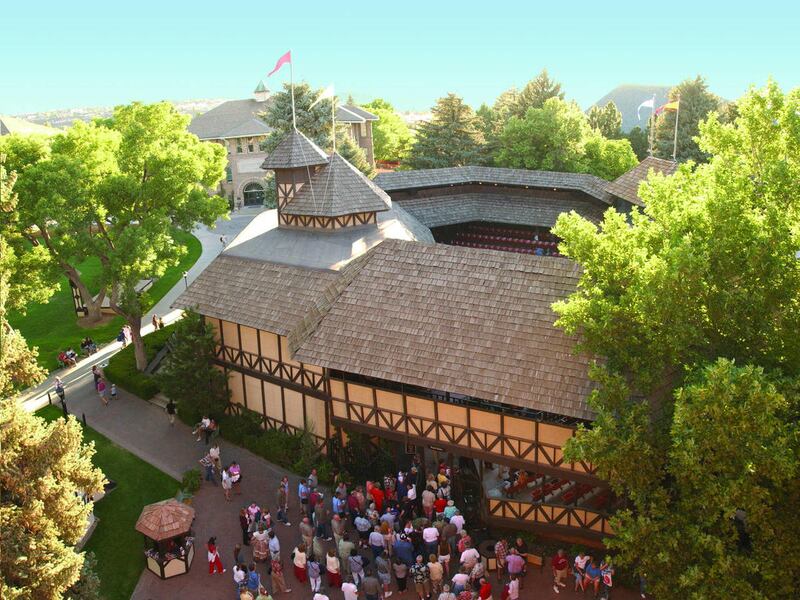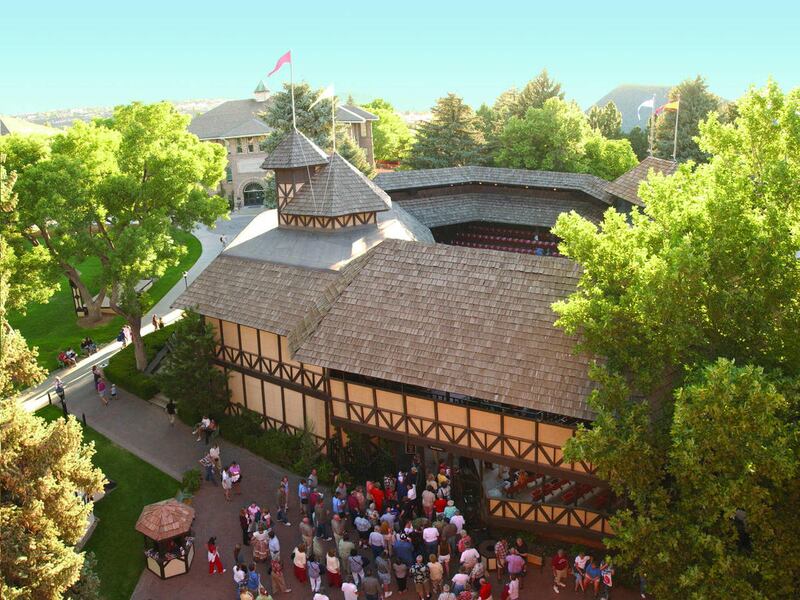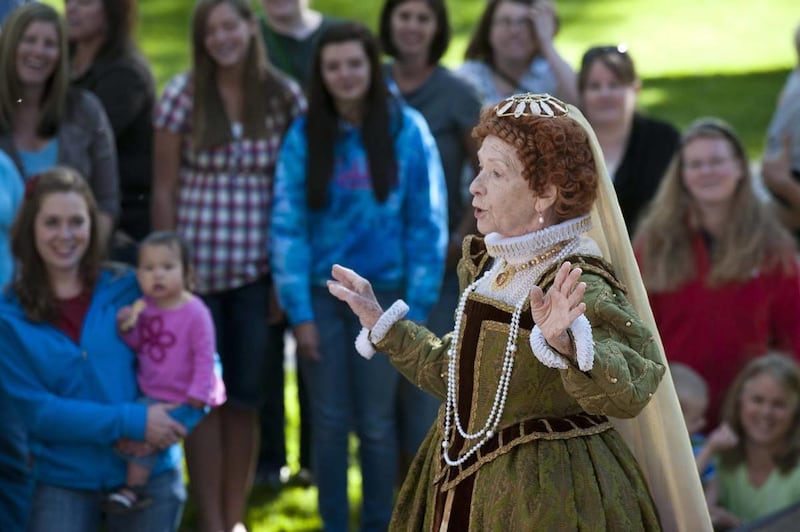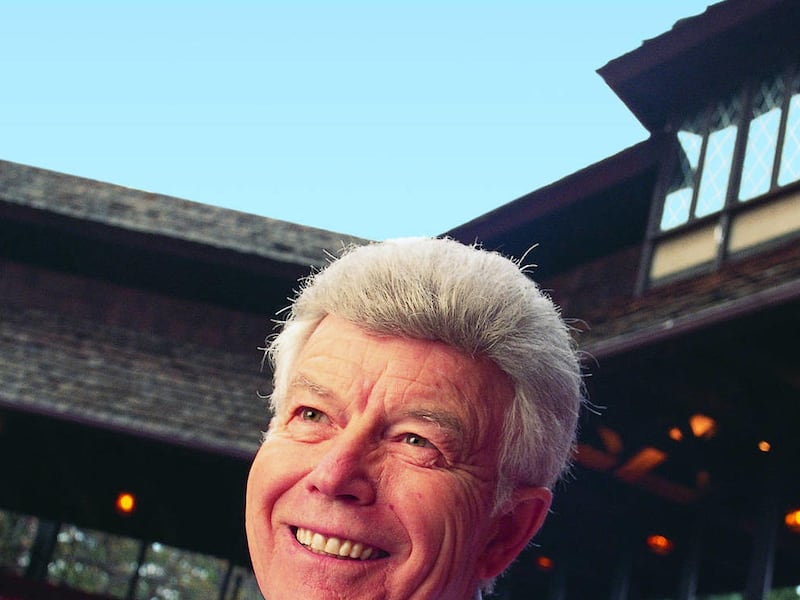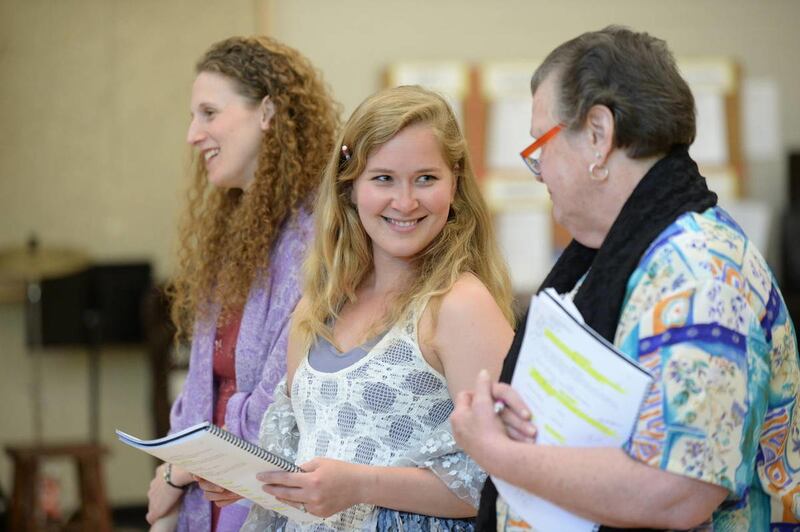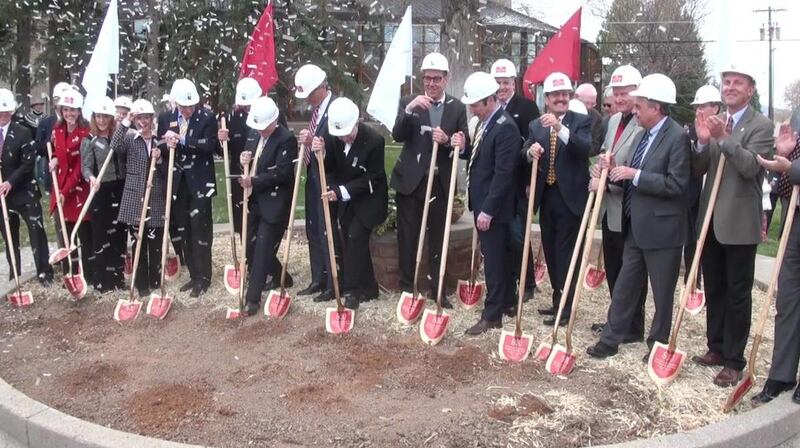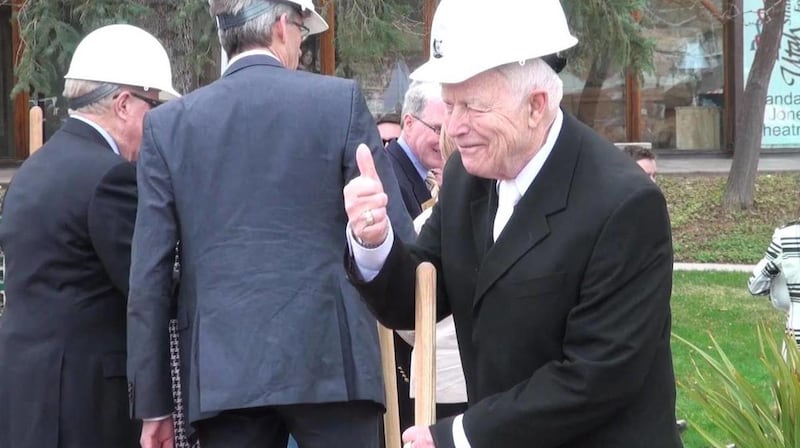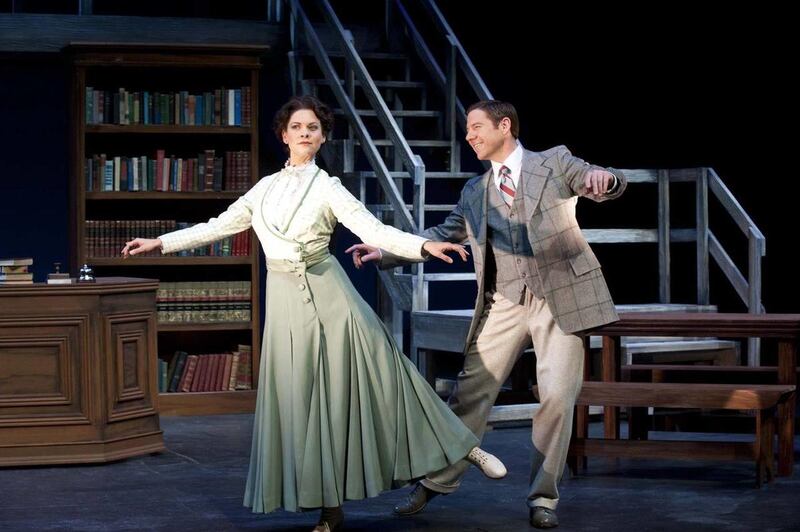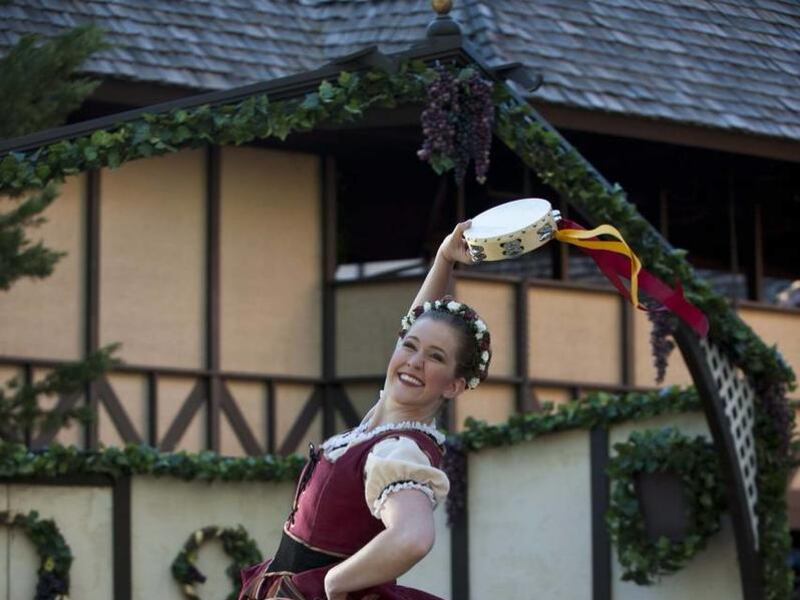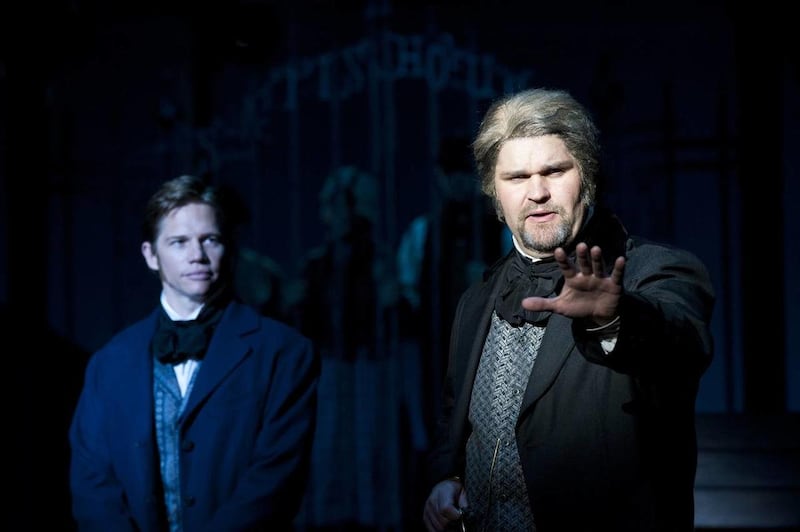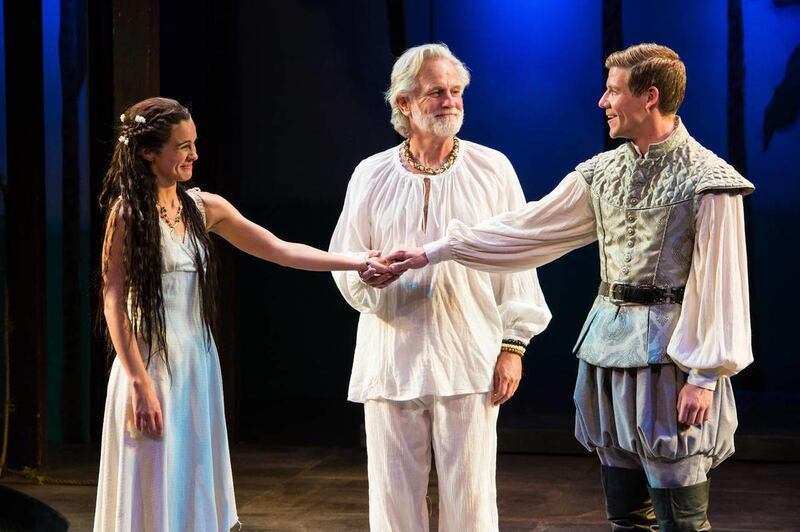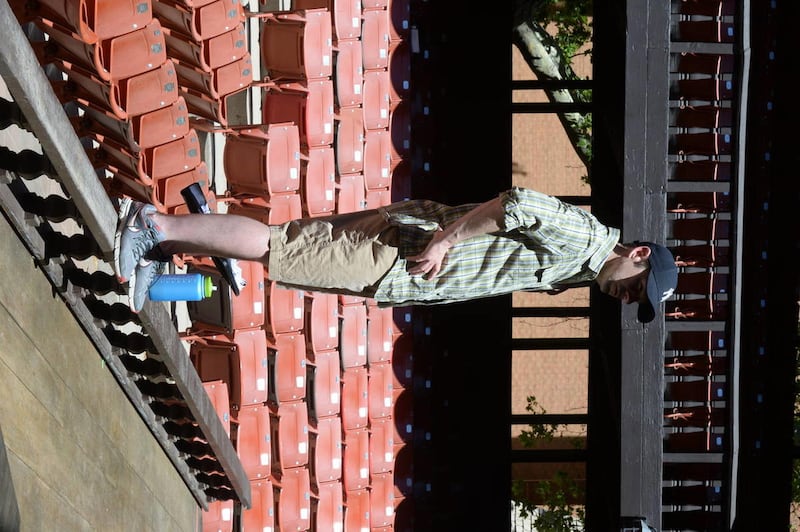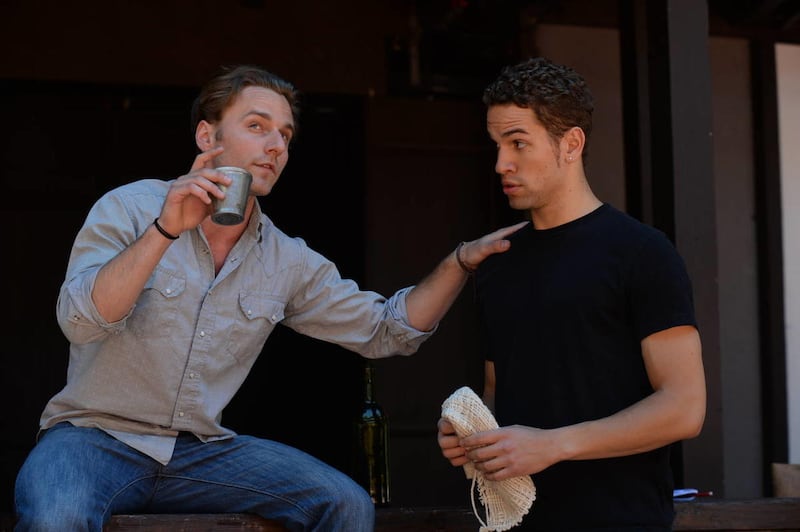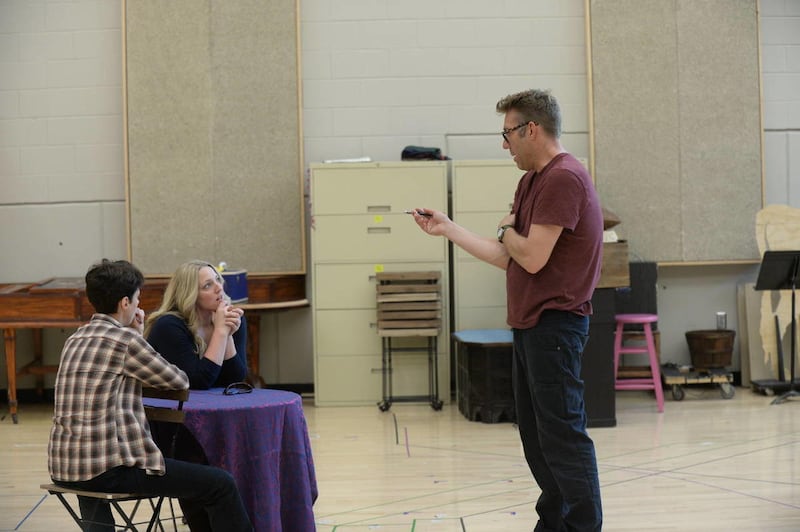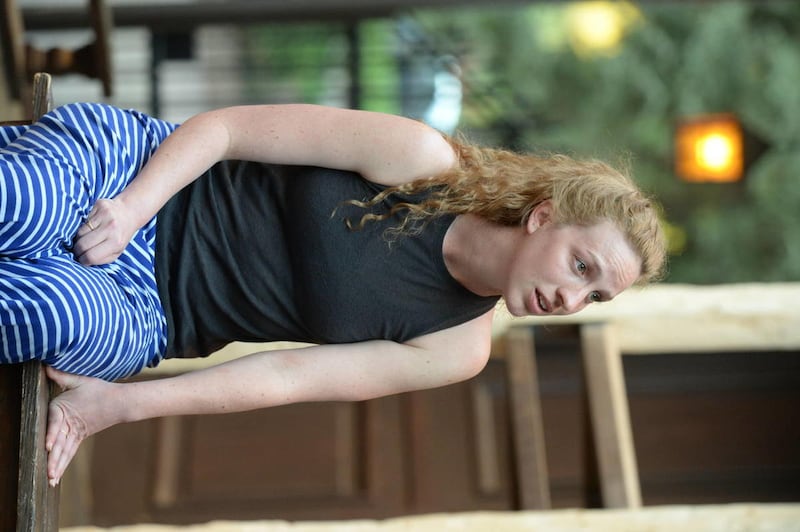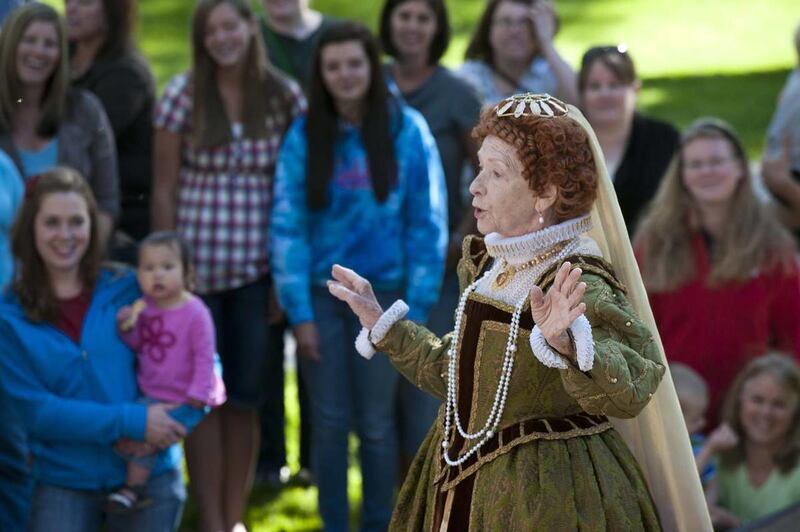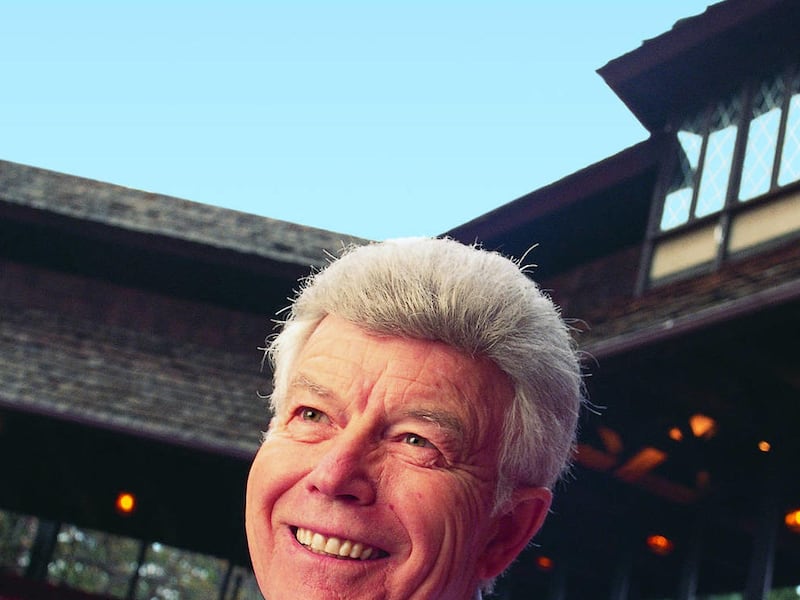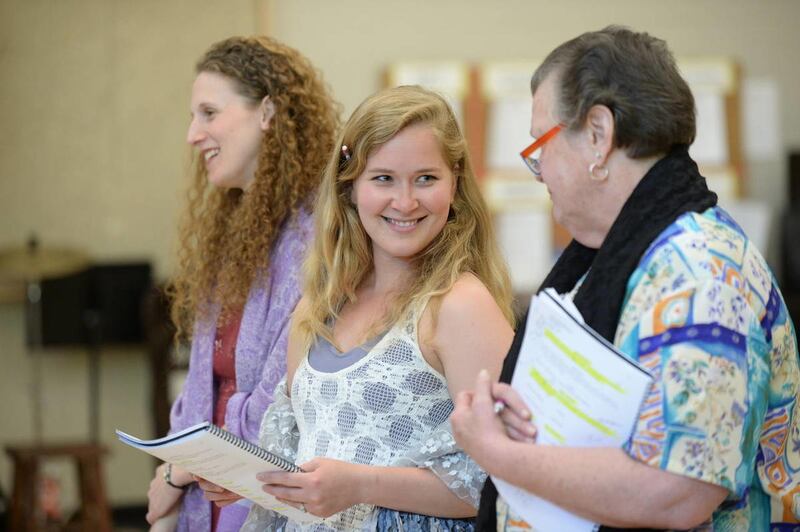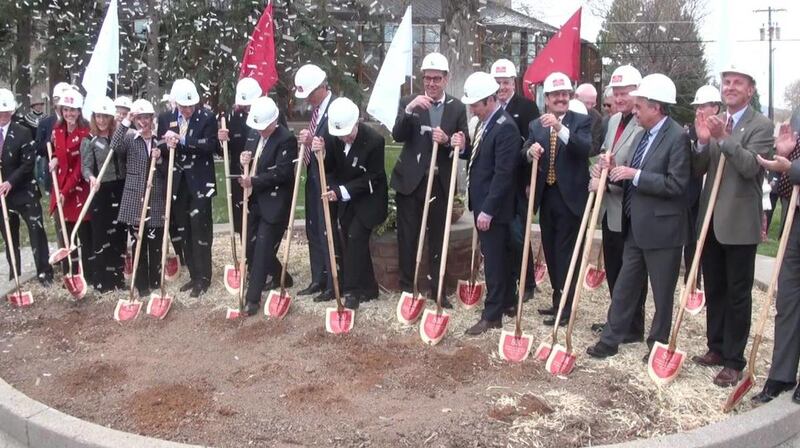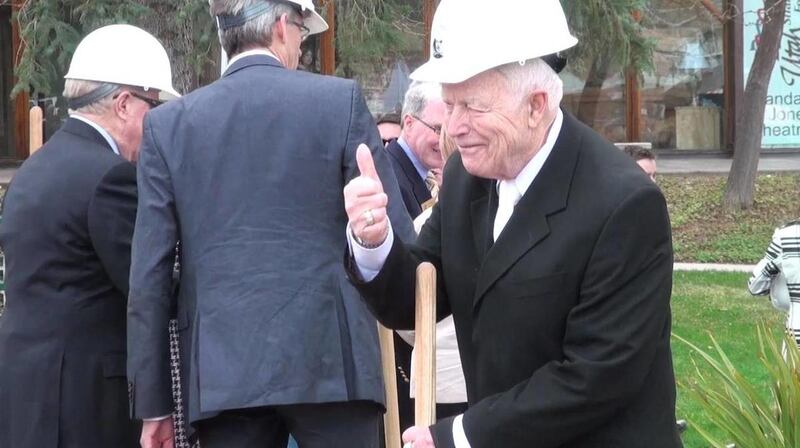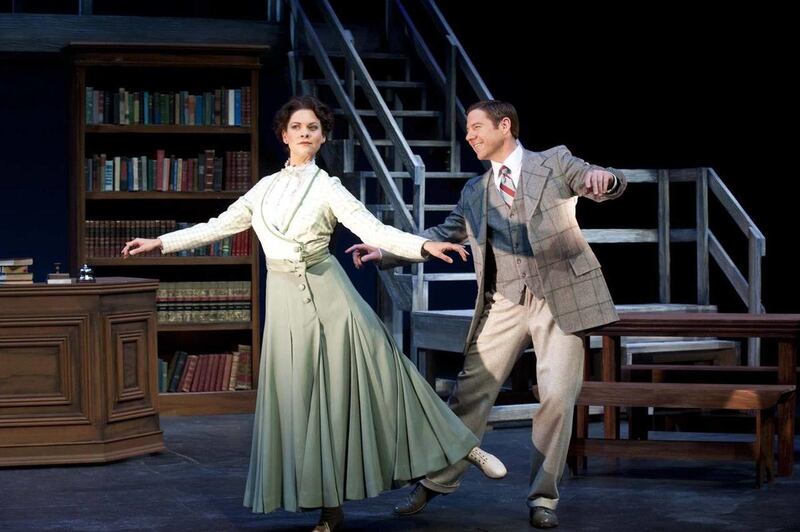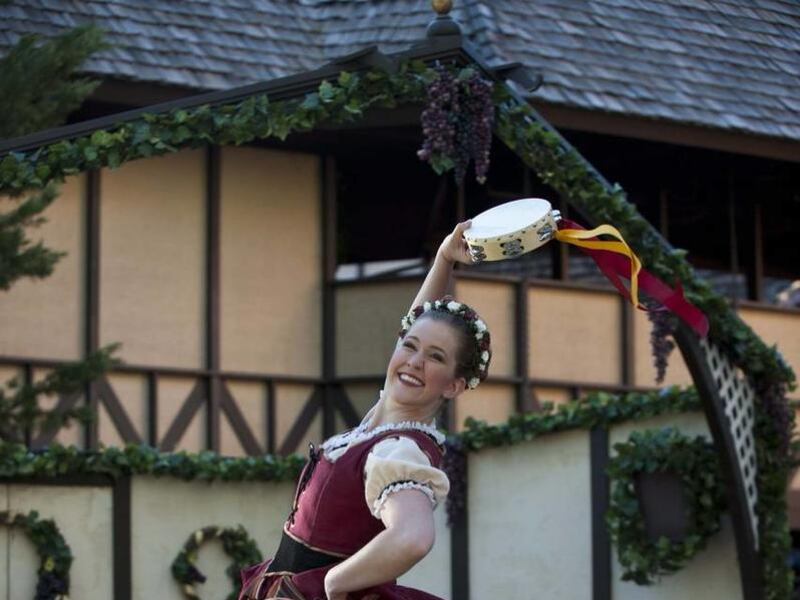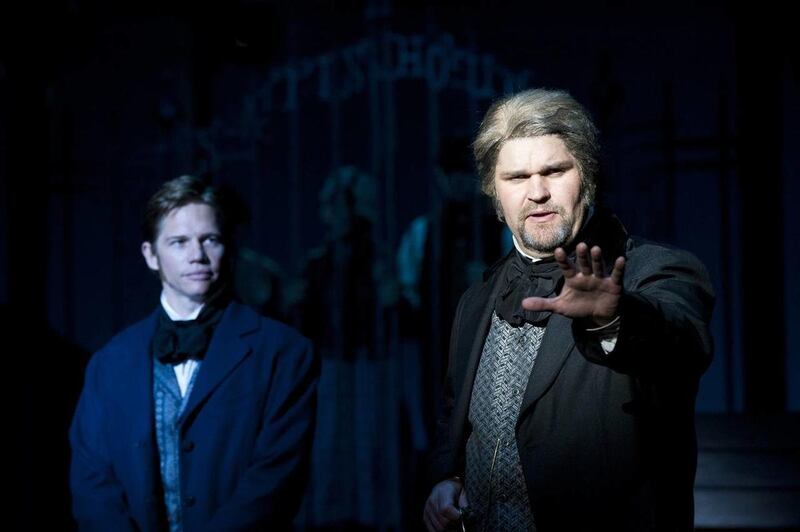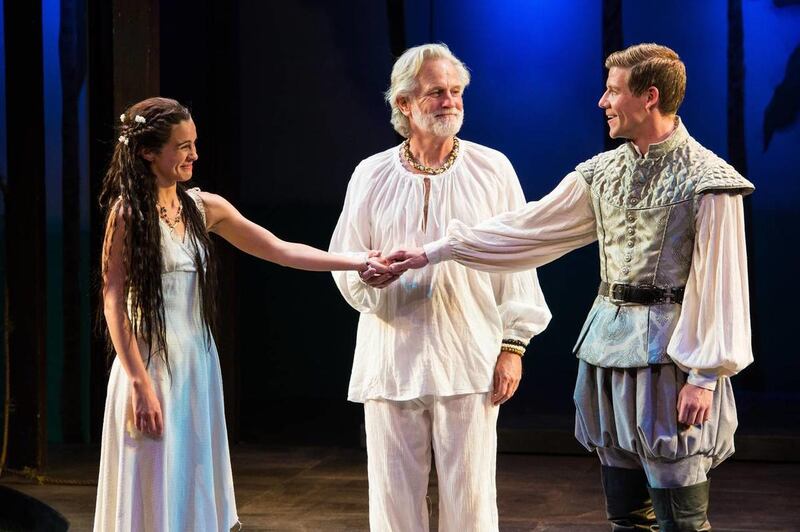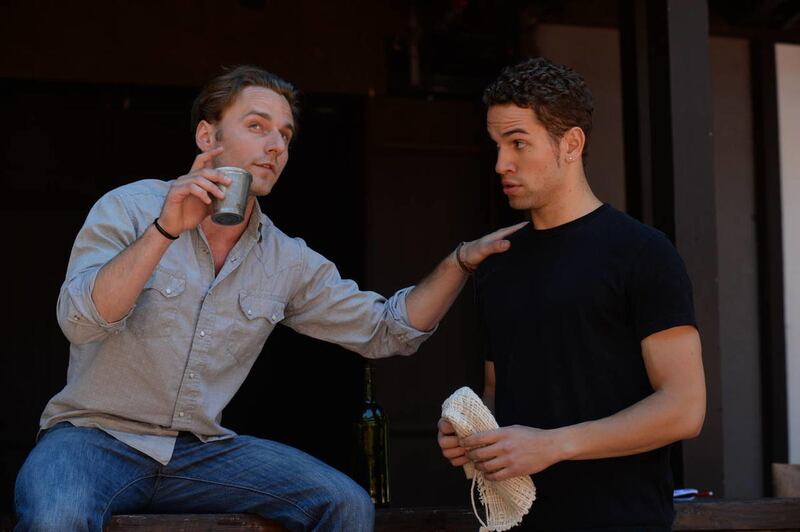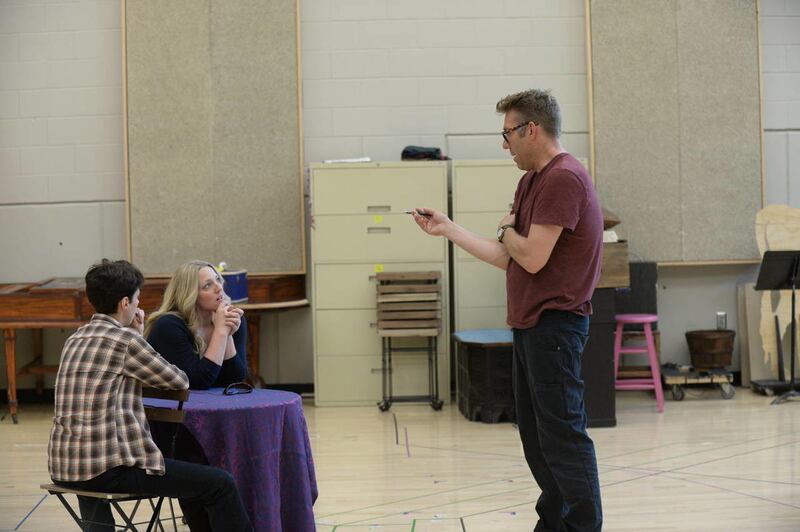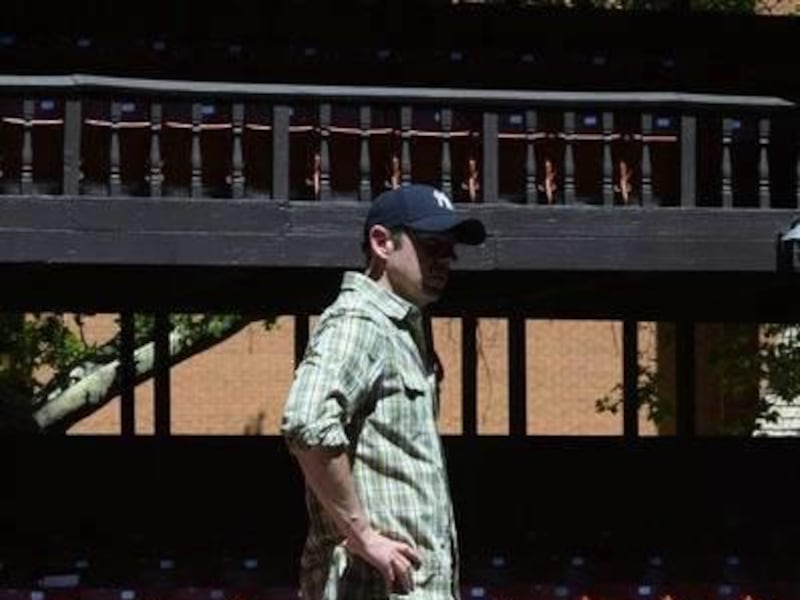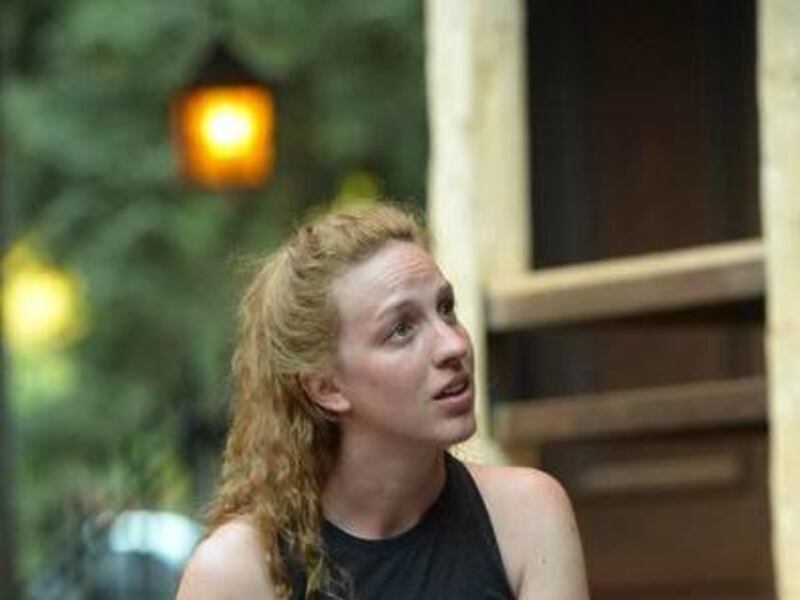Even though it was written (more than 400) years ago, there’s still something about those characters, about those situations, that still speak to us today. – R. Scott Phillips
Editor's note: This is the fifth story in a series highlighting arts organizations around Utah.
It begins with a vision.
Up to 18 months of planning, designing, searching, casting, rehearsing and dreaming turns the vision into reality.
A staff of 35 people jumps to approximately 300 administrators, actors, directors and more. An almost tangible energy is in the air as they busily prepare for the last week in June when the opening performances begin.
And it is William Shakespeare who inspires all the bustle.
“Even though it was written (more than 400) years ago, there’s still something about those characters, about those situations, that still speak to us today,” said R. Scott Phillips, executive director for the festival.
For 53 years, the Utah Shakespeare Festival has brought Shakespeare’s works to residents and visitors of Cedar City, Utah, with the hope that his plays will continue to teach life lessons. With his plays as a base, the organization also seeks to create a varied experience by providing additional plays and learning opportunities.
A foundation
Fred C. Adams, founder of the Utah Shakespeare Festival, wasn’t bringing anything foreign to Utah; he was building on a foundation that already existed. “Right from the beginning, when it was the state of Deseret, Brigham Young was promoting quality theater,” Adams said.
Brigham Young once said, “The people must have amusement as well as religion,” according to the book “The Place Which God Prepared” by Scott C. Esplin and Kenneth L. Alford.
Adams further noted that even in the midst of construction on The Church of Jesus Christ of Latter-day Saints' Salt Lake Temple, the Salt Lake Theatre opened in 1862 to meet that need for amusement, and a legacy of love for theater in Utah was born.
Adams said this early foundation of appreciation for theater, along with the desire to boost Cedar City’s economy and provide evening activities for summer tourists, served as his motivation for establishing the festival in 1961.
“I think probably as important as any (reason for founding the festival) was to keep alive this passion that the early settlers had in the arts, in classical music, in classical literature and especially in the writings of William Shakespeare,” Adams said.
The Utah Shakespeare Festival has continued to grow and to earn recognition on a national level.
“I don’t think people realize how far-reaching this Shakespeare festival is in terms of how many top-notch people in this industry are excited and clamoring to work down here in southern Utah at this organization,” he said.
In fact, the Utah Shakespeare Festival was awarded a Tony Award in 2000 for Outstanding Regional Theatre, but many residents throughout the state and surrounding region have yet to visit it.
“It’s like living in Arizona and never going to the Grand Canyon a little bit,” said Brian Vaughn, who works as an artistic director with Ivers. “Right in our backyard is this world-renowned organization that is doing some of the finest work in theater in the nation.”
Finding relevance
Shakespeare’s works may be considered classics, but that doesn’t mean they are always popular.
Adams explained that one of the challenges the Utah Shakespeare Festival faces is overcoming some people’s aversion to the Bard of Avon’s work because of a lack of understanding. One of the organization’s primary missions is to help as many people as possible understand the meaning behind Shakespeare’s writings.
“There’s something that happens when you have a positive Shakespeare theater experience,” said Michael Bahr, education director for the Utah Shakespeare Festival. “It was never meant to be read in a book; it was meant to see live and onstage.”
The organization runs several education programs to create these positive experiences. A group of actors tours schools in Utah, Nevada, Arizona and Idaho every January through April to perform abbreviated versions of a Shakespeare play. The play selected for 2014 was “The Taming of the Shrew,” and it was performed approximately 50 times.
Adams said that every four years, every school district in Utah is “able to have a fully mounted, fully realized Shakespeare production for their students.”
The festival also offers teacher training and an annual high school competition that provides students with the opportunity to perform and learn about Shakespeare plays through workshops and seminars.
The hope is that students will see the plays’ applications in their own lives.
“I find them eternally illuminating about the human condition,” Vaughn said. “At any point in anyone’s life, they will continue to resonate in new ways.”
Different lessons can be learned from different works, Adams said.
Through stories such as “Macbeth,” one can learn that “the end does not justify the means;” “Richard III” teaches the potential of power to corrupt; and “Romeo and Juliet” demonstrates how “hate, envy and covetousness can destroy young people’s lives,” Adams said.
“(Even) though (Shakespeare's) language seems for the first 4-5 minutes a bit strange, your ear attunes to it and you start to see yourself in it,” he said.
Preparing a season
Preparations for each year of the Utah Shakespeare Festival begin long before the actors take to the stage for the first performance.
The work starts with selecting which plays will be performed; Ivers and Vaughn do this a year in advance.
“We just announced our 2015 season, so even though we’re about to open 2014, we’re already working on 2015,” Phillips said.
The programming is built first around which Shakespeare plays will be part of the season.
“The formula, which frankly we kind of inherited and works, is we usually start looking at a history, a tragedy and a comedy,” Ivers said.
In addition to the Shakespeare plays from which the festival derives its name, the organization also hosts musicals and plays by other playwrights each season.
“We don’t just do Shakespeare,” Adams said. “We really are a library here of variety, of variation. The foundation is Shakespeare. We always do three, sometimes four, of Shakespeare’s plays, but we always have other plays as well.”
Ivers and Vaughn also begin assembling the cast of approximately 60 actors several months in advance. They travel to places such as Chicago, New York and Los Angeles.
“They have to look for actors who are versatile, who can sing, who can speak Shakespearean verse, who can dance, who can do comedy, who can do tragedies, because out of that 60 actors … (there are) hundreds of characters in the six different shows that they have to fill, and it’s like this big matrix Tetris game that they have to play and figure out,” said Nikki Allen Koontz, media and public relations manager for the festival.
More than plays
Although the Utah Shakespeare Festival is well-known for its annual productions, it also offers many other elements and activities geared toward cultivating understanding for the Shakespearean culture.
“Somebody can spend all day at the Shakespeare Festival and not be bored,” Koontz said. “There is something going on every hour because we know that they’re traveling such a long distance.”
Half-hour orientations are offered before each show to give audience members an overview of what will occur onstage.
“This was started way back in 1961-62. Fred (Adams) wanted people to feel comfortable,” Bahr said. “He doesn’t tell them the whole plot; he just gets you just enough information so he can get you going.”
Literary seminars held each morning are designed to cultivate discussion and understanding as dramaturgs, or theater scholars, lead discussions and answer questions about the plays.
The Greenshow, which is held each evening, features singing, dancing, juggling, puppet shows, food and more.
“It started at the beginning of the festival as a way to help immerse people into kind of this Elizabethan atmosphere, to kind of tune their ear to the language,” Koontz said.
All of these activities, as well as prop, costume and actor seminars, are free for festivalgoers.
“Part of that ticket cost is all of these free experience-based educational opportunities because part of our mission is very education-focused,” Koontz said. “We want people to feel really comfortable in the spaces, like their home.”
Other offerings, such as backstage tours and Repertory Magic, where audiences can watch the stage crew and technicians change everything over from the matinee show to the evening show, are ticketed events and cost $8 each.
“It’s worth the time and the energy to be transported by these plays,” Vaughn said.
Future and continuing projects
The Utah Shakespeare Festival continues to plan for the future with current and upcoming projects.
Ivers and Vaughn began the Complete-the-Canon Project in 2012 with the goal to produce all 38 of Shakespeare’s plays by 2023.
It will be the first time the festival will have performed all of the plays. In its 53 years, it has not yet performed all three parts of “Henry VI” separately and in their entirety and has also not performed “The Two Noble Kinsmen.” Each of those four plays, as well as others of Shakespeare’s plays that have been performed less frequently at the festival, will be performed as part of the project.
“A lot of it is not only doing those plays we haven’t done, but it’s also revisiting those plays that have had very little stage time,” Vaughn said.
Within the Complete-the-Canon project, the festival also began its initiative to perform all of Shakespeare’s history plays in chronological order. As some of the characters appear in multiple plays, some of the actors have been contracted to return to play their character in future seasons.
Additionally, the Utah Shakespeare Festival’s administration has planned for approximately 25 years to expand its facilities, and the organization broke ground on March 27 for the Beverley Taylor Sorenson Center for the Arts.
Thanks to donations large and small, the nonprofit organization has raised the funds to begin the construction project. The $35 million facility will include two new theaters, administrative offices, a costume shop and rehearsal hall, and will be equipped with the latest technology to take the festival’s productions to a whole new level.
“It’s going to be dusty and muddy and noisy (during construction), but it will be beautiful when it’s all completed and well worth the wait,” Phillips said.
The building is set to open in 2016 in time for the quadricentennial of Shakespeare’s death.
Festival organizers also plan to eventually expand the festival's season and create more of a year-round program to provide more people with the opportunity to experience the festival.
“You’ll have the opportunity to see more plays and more offerings in the coming years,” Phillips said.
Email: wbutters@deseretnews.com, Twitter: WhitneyButters

